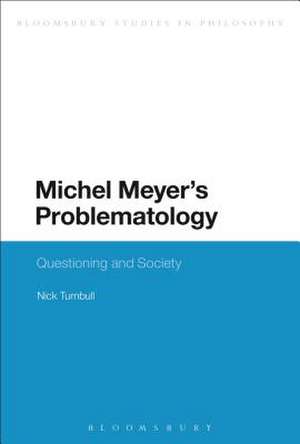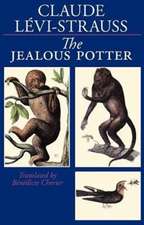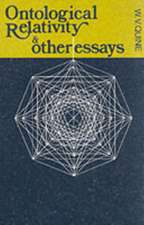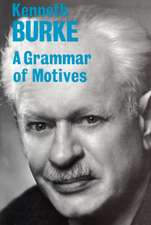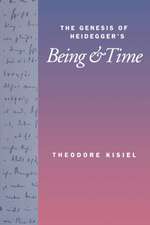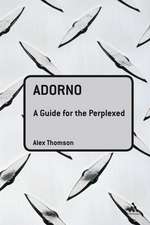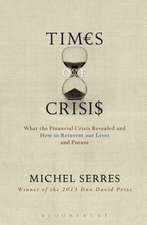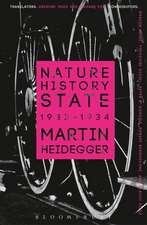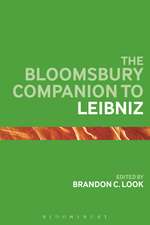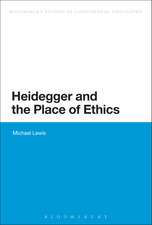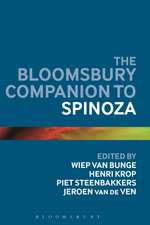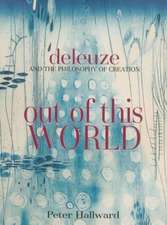Michel Meyer's Problematology: Questioning and Society
Autor Dr Nick Turnbullen Limba Engleză Paperback – 21 oct 2015
| Toate formatele și edițiile | Preț | Express |
|---|---|---|
| Paperback (1) | 256.38 lei 43-57 zile | |
| Bloomsbury Publishing – 21 oct 2015 | 256.38 lei 43-57 zile | |
| Hardback (1) | 773.06 lei 43-57 zile | |
| Bloomsbury Publishing – 9 apr 2014 | 773.06 lei 43-57 zile |
Preț: 256.38 lei
Preț vechi: 330.61 lei
-22% Nou
Puncte Express: 385
Preț estimativ în valută:
49.07€ • 53.32$ • 41.25£
49.07€ • 53.32$ • 41.25£
Carte tipărită la comandă
Livrare economică 21 aprilie-05 mai
Preluare comenzi: 021 569.72.76
Specificații
ISBN-13: 9781474242073
ISBN-10: 1474242073
Pagini: 216
Ilustrații: 10 illus
Dimensiuni: 156 x 234 x 25 mm
Greutate: 0.31 kg
Editura: Bloomsbury Publishing
Colecția Bloomsbury Academic
Locul publicării:London, United Kingdom
ISBN-10: 1474242073
Pagini: 216
Ilustrații: 10 illus
Dimensiuni: 156 x 234 x 25 mm
Greutate: 0.31 kg
Editura: Bloomsbury Publishing
Colecția Bloomsbury Academic
Locul publicării:London, United Kingdom
Caracteristici
Explores
Meyer's
philosophy
-
'problematology'
-
including
his
argument
for
questioning
as
a
new
metaphysics
Notă biografică
Nick
Turnbullis
Lecturer
in
Politics
at
the
University
of
Manchester,
UK.
Cuprins
PrefaceAcknowledgementsList
of
Abbreviations
Introduction:
Why
Problematology?
A
New
Philosophical
Approach
to
Social
Science
1.
Problematology:
A
New
Foundation
for
Reason
2.
The
Problematological
Critique
of
Post-foundationalism
3.
Questioning
in
the
Philosophy
of
Social
Science
4.
Questioning,
Contingency
and
Meaning
5.
Problematology
and
the
Emotions
6.
Rhetoric
and
Social
Distance
Conclusion:
Problematology
and
Social
InquiryNotesReferencesIndex
Recenzii
'To
be
human
is
to
question':
Nick
Turnbull's
new
book
is
a
welcome
and
lucid
introduction
to
the
theory
of
problematology
-
or
the
philosophy
of
questioning
-
created
in
the
last
half
century
by
Michel
Meyer,
professor
of
Rhetoric
in
Brussels.
It
brings
a
unique
and
hugely
significant
contribution
of
the
French-language
academy
to
an
English-speaking
audience
in
an
accessible
and
jargon-free
account.
It
opens
many
questions
in
its
own
right
and
demonstrates
the
wide
application
of
problematology
beyond
philosophy
per
se,
to
the
social
and
human
sciences,
to
the
study
of
rhetoric
and
the
emotions,
and
to
the
arts
including
theatre
and
the
visual
arts.
The author explains the key concepts of problematology, showing his deep acquaintance with Meyer's thought.The book shows problematology both as a classic philosophy seeking foundational grounds and also as a new and original perspective, a new paradigm for thought.It is undoubted that, like all new paradigms, the radical outlook of problematology makes it very difficult to apprehend. But this book contributes strongly to make readers able to understand the key concepts of Meyer's thought and to become aware of its originality and fecundity.
Problematology is a new paradigm in philosophy, arguably the first fully-fledged philosophical conception since the war. Its revolutionary approach grounds thought in questioning: if philosophy has been defined since Socrates as radical questioning, why has questioning not been explicitly questioned? Why has questioning been repressed from thought, and instead propositions and judgments considered as its elementary units? The question-view of philosophy, known as problematology, is the questioning of questioning. It has given rise to a theory of humanity, of language, of emotions, of ethics and rhetoric, and even of history. Nick Turnbull's is undoubtedly the best book to read, if you want to understand what problematology is about. His analysis is crisp, thorough, and relates all of its aspects with one another, shedding special insights on the importance of problematology for the humanities and the social sciences. Questioning is essential in a problematic world and, through its interdisciplinary perspective, Turnbull's book offers droves of perspectives on contemporary thought. The social is defined by the distance between individuals, politics aims to modify it, ethics relates it to good and evil, and rhetoric is how people negotiate the distance between them. Turnbull's book is the synthesis of all those vantage points. A great book written by one of the major social scientist of today.
For Michel Meyer, questioning is fundamental to philosophy, to human creativity and to the organisation of society in general. Nick Turnbull's elegant and lucid exploration illuminates the critical power of Meyer's 'problematology' both as a paradigm of thought and as a tool of social inquiry. This is an important and insightful book that will stimulate discussion -- and questioning -- across the Social Sciences and Humanities.
Long a mainstay for francophone philosophers, Michel Meyer remains unduly unappreciated by English-speaking readers. With his lucid approach and clear prose, Nick Turnbull continues his longstanding efforts to explain the pertinence of Meyer's powerful corpus of work on problematology for philosophers, and also demonstrates the value and profundity of Meyer's wide-ranging thought for a range of research areas including metaphysics, politics, ethics, literature, aesthetics, logic and rhetoric. Emphasizing the importance of viewing questioning, rather than Being, as the starting point from which philosophy can and should, begin, Meyer provides tools to review critical discussions with unexpected insights that, as Turnbull aptly demonstrates in this wonderful book, could reinvigorate studies of society that are currently dominated by a small and, from this perspective, rather narrow cadre of thinkers.
The author explains the key concepts of problematology, showing his deep acquaintance with Meyer's thought.The book shows problematology both as a classic philosophy seeking foundational grounds and also as a new and original perspective, a new paradigm for thought.It is undoubted that, like all new paradigms, the radical outlook of problematology makes it very difficult to apprehend. But this book contributes strongly to make readers able to understand the key concepts of Meyer's thought and to become aware of its originality and fecundity.
Problematology is a new paradigm in philosophy, arguably the first fully-fledged philosophical conception since the war. Its revolutionary approach grounds thought in questioning: if philosophy has been defined since Socrates as radical questioning, why has questioning not been explicitly questioned? Why has questioning been repressed from thought, and instead propositions and judgments considered as its elementary units? The question-view of philosophy, known as problematology, is the questioning of questioning. It has given rise to a theory of humanity, of language, of emotions, of ethics and rhetoric, and even of history. Nick Turnbull's is undoubtedly the best book to read, if you want to understand what problematology is about. His analysis is crisp, thorough, and relates all of its aspects with one another, shedding special insights on the importance of problematology for the humanities and the social sciences. Questioning is essential in a problematic world and, through its interdisciplinary perspective, Turnbull's book offers droves of perspectives on contemporary thought. The social is defined by the distance between individuals, politics aims to modify it, ethics relates it to good and evil, and rhetoric is how people negotiate the distance between them. Turnbull's book is the synthesis of all those vantage points. A great book written by one of the major social scientist of today.
For Michel Meyer, questioning is fundamental to philosophy, to human creativity and to the organisation of society in general. Nick Turnbull's elegant and lucid exploration illuminates the critical power of Meyer's 'problematology' both as a paradigm of thought and as a tool of social inquiry. This is an important and insightful book that will stimulate discussion -- and questioning -- across the Social Sciences and Humanities.
Long a mainstay for francophone philosophers, Michel Meyer remains unduly unappreciated by English-speaking readers. With his lucid approach and clear prose, Nick Turnbull continues his longstanding efforts to explain the pertinence of Meyer's powerful corpus of work on problematology for philosophers, and also demonstrates the value and profundity of Meyer's wide-ranging thought for a range of research areas including metaphysics, politics, ethics, literature, aesthetics, logic and rhetoric. Emphasizing the importance of viewing questioning, rather than Being, as the starting point from which philosophy can and should, begin, Meyer provides tools to review critical discussions with unexpected insights that, as Turnbull aptly demonstrates in this wonderful book, could reinvigorate studies of society that are currently dominated by a small and, from this perspective, rather narrow cadre of thinkers.
